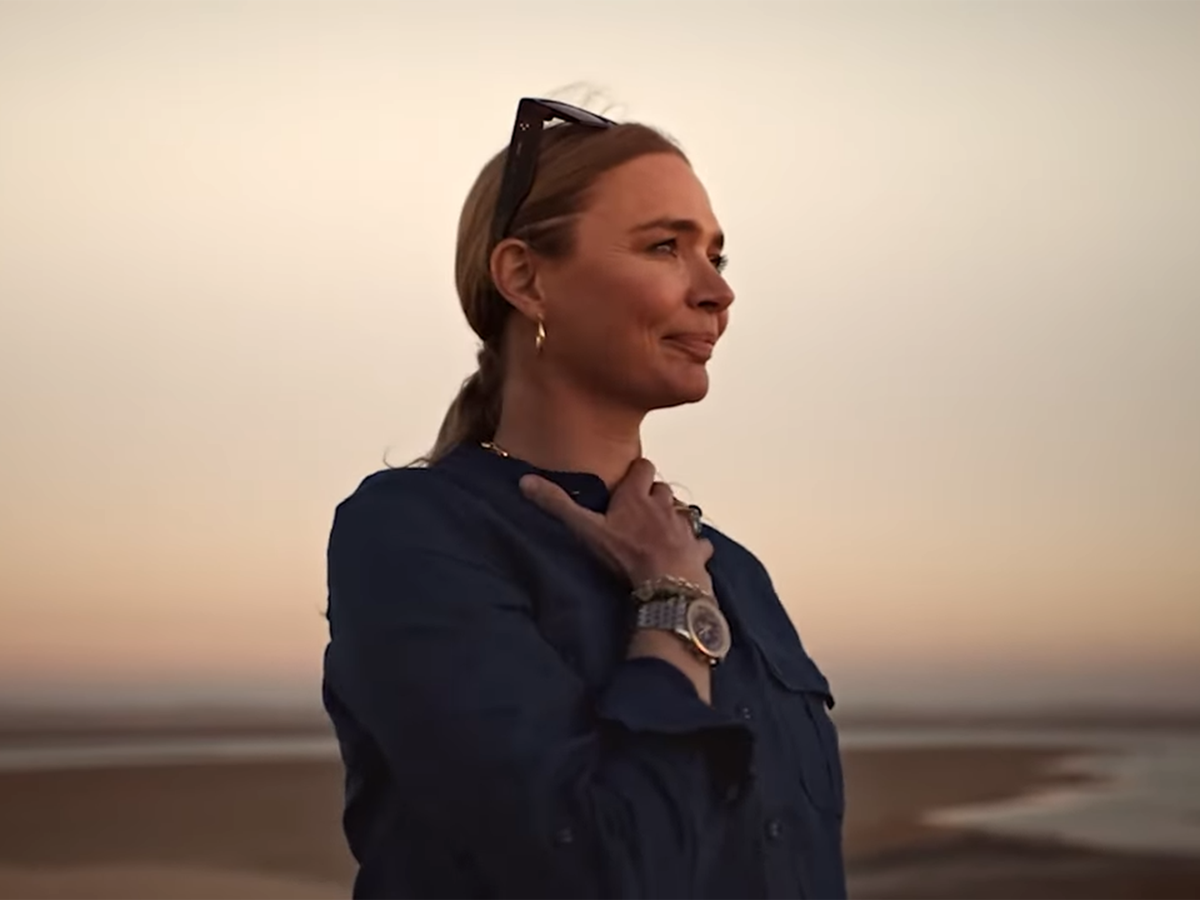Amnesty hits out at BBC for ‘uncritical’ videos advertising Qatar ahead of World Cup

- Oops!Something went wrong.Please try again later.
- Oops!Something went wrong.Please try again later.
The BBC has come under fire for accepting payment to advertise Qatar ahead of the World Cup, producing flattering films fronted by the model Jodie Kidd – despite human rights concerns in the Gulf state.
BBC StoryWorks – part of the corporation’s commercial arm – has produced three “blandly uncritical” videos for Qatar Tourism which have amassed more than half a million views.
Amnesty International UK questioned the national broadcaster’s involvement, saying “Qatar-funded advertorials” produced by the BBC risked “blurring the line between journalism and fundraising”, as well as arguing the videos “are effectively allowing Qatar to airbrush human rights abuses from sight”.
Qatar’s hosting of the World Cup, due to kick off in November, has been a source of huge controversy. Male homosexuality is outlawed in the Gulf state, women’s rights suppressed and the plight of migrant workers has repeatedly been highlighted.
In one film, marked with an “Ad” hashtag on YouTube, Kidd - billed as a “Global Traveller’’ – lauds “the Qatar food scene”, describing it as “incredibly exciting” in a voiceover, making reference to “new flavours, and herbs and spices” as she is shown wandering around the capital, Doha.

Another film promoted the green credentials of hotels in Qatar. The video, uploaded to YouTube in 2020, was produced for Qatar Green Building Council [QGBC] – which was a member of Qatar Foundation – by BBC StoryWorks.
Former England football captain David Beckham – an ambassador for the tournament – has been criticised for appearing in a video campaign promoting Qatar as a travel destination. A spokesperson for Beckham told BBC Sport last year: “David has been visiting Qatar regularly for over a decade and went on to play for [Qatar-owned] PSG - so he has seen the passion for football in the country and the long-term commitment that’s been made to hosting the World Cup and delivering a lasting legacy for the region.”
Peter Frankental, Amnesty International UK’s Economic Affairs Director, said: “We’ve already seen with David Beckham’s heavily-criticised glossy videos, that the Qatari authorities are willing to spend vast sums to promote a positive image of their country.
“Paid-for ‘advertorial’ content is common on many news sites, but in the lead-up to a World Cup plagued by human rights issues these blandly uncritical videos are effectively allowing Qatar to airbrush human rights abuses from sight.
“Preparations for the World Cup have shone an important spotlight on the exploitation of migrant workers and the country’s repressive anti-LGBTI laws, so is this really the time for the BBC to be hosting a series of videos uncritically extolling the virtues of Qatar as a tourist destination?
“The BBC’s journalism on Qatar has produced some powerful and hard-hitting investigations, with its own reporters harassed for this, and by profiting from Qatar-funded advertorials … before the World Cup kicks off the BBC risks blurring the line between journalism and fundraising.”
A BBC spokesperson said: “BBC News reports extensively and impartially on the issues surrounding Qatar hosting the World Cup, including allegations of human right abuses and exploitation. Running advertising outside of the UK, which is clearly labelled as such and is completely separate to our editorial output, allows us to invest in our world-class journalism.”
A Qatari government official said: “Tourism is a priority sector for Qatar to diversify its economy and drive private-sector participation. Like the UK and other countries around the world, Qatar invests in tourism marketing to attract visitors. Qatar is the fastest growing tourism destination in the Middle East and aims to welcome six million visitors by 2030. All of Qatar’s marketing activities strictly adhere to the UK’s legal and regulatory requirements.”
Qatar Foundation said: “The video that has been highlighted was part of a global series of videos initiated by the World Green Building Council, of which the Qatar Green Building Council was proud to be a part. Our participation and contribution to that series was focused on the Green Key program that we were running in an effort to promote sustainability in one of Qatar’s fastest growing sectors.”
It added: “QGBC, now Earthna, is incredibly proud of our role in educating, promoting, and defining standards in sustainable hospitality for Qatar. Our work with the World Green Building Council and BBC Storyworks was an important tool for us to tell our story to local and international audiences.”
Qatar Tourism and a representative of Kidd were both contacted for comment.

